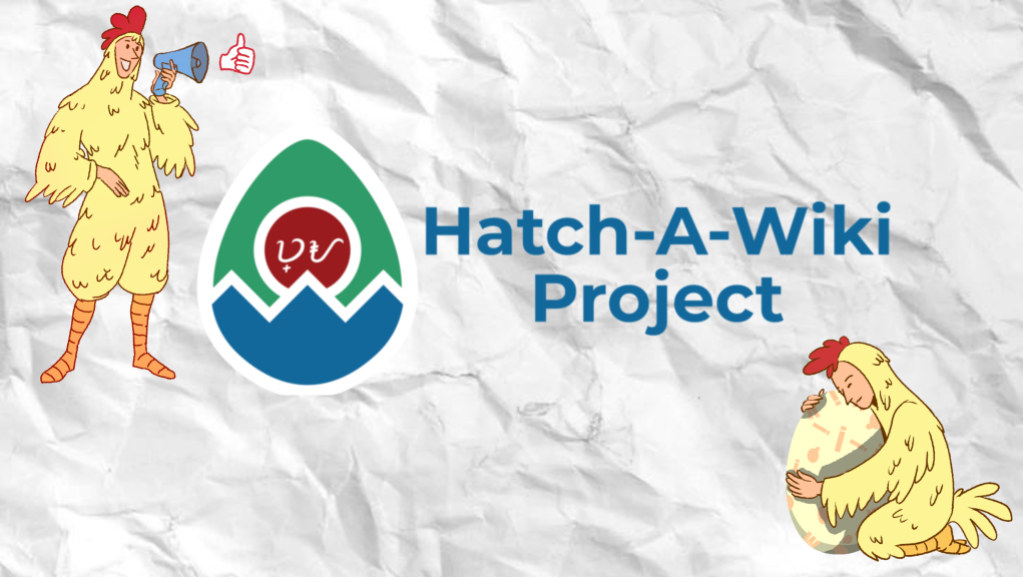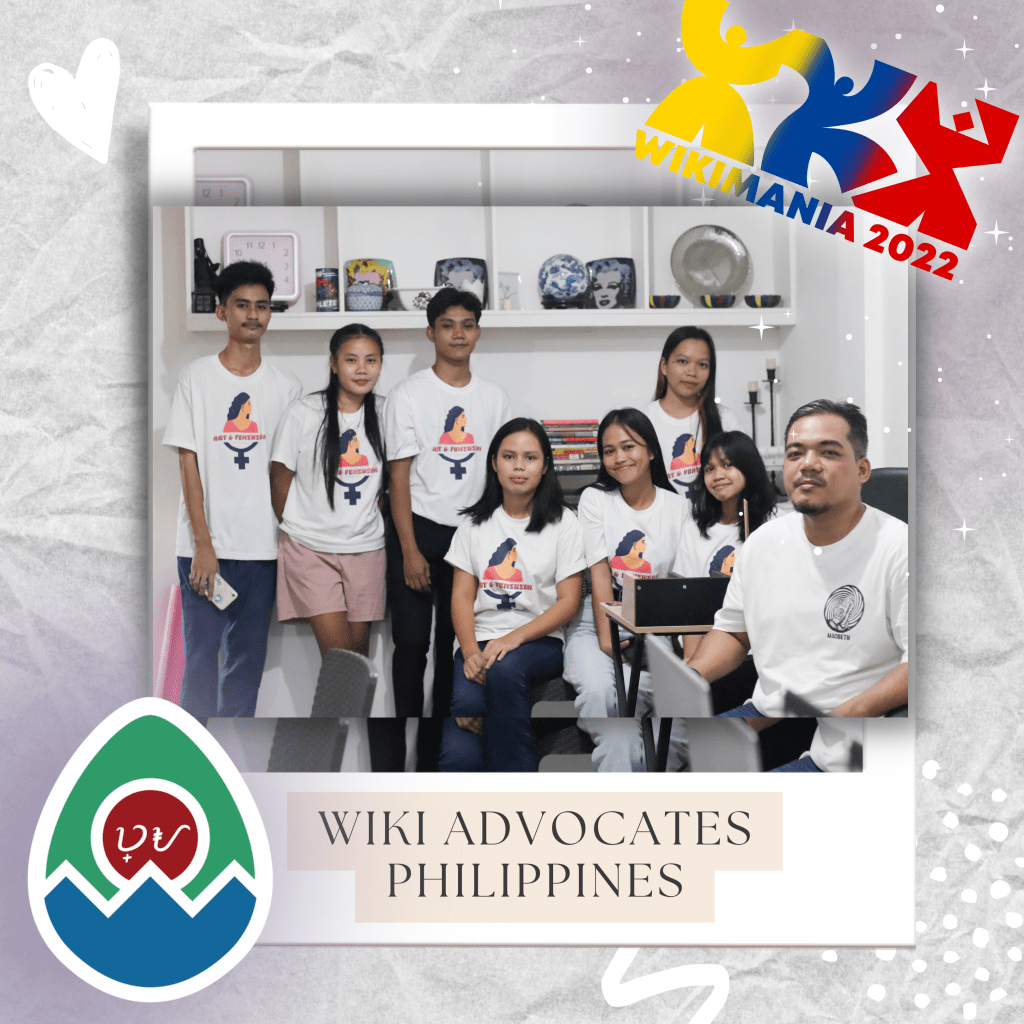Hatch-A-Wiki Project started from the idea of getting the Central Bikol Wiktionary its own space last 2019. Back then, it was thirteen years on incubator status. Imelda, a co-founder of Wiki Advocates Philippines, has become interested in that one stagnating project in Wikimedia Incubator. Later, she will be coining the term “Hatch-A-Wiki” for all the projects the group plans to work on in the incubator. MaroBos, a long-time volunteer, pioneered the project in June 2021. The word hatch is equivalent to the Central Bikol word “Himsa,” or that certain period the egg shells crack, and later on, the newly-hatched chick will see the first light of this world. That is how the group foresees every incubator project on local languages will do in the long run.

The Hen
From a wiki-world perspective, the hen is the editor. The Wiki Advocates Philippines served as the mother-hen for two local wiki projects in the incubator this past two years, the Central Bikol and Tagalog Wikiquote. Comparing ourselves to a hen awaiting the birth of our chick, we wanted to devote much time preparing for its delivery. On wiki-world, that is the period where editors maintain a sustained activity for a definite period before we get the final approval of the Language Committee.

Core organizers of Wikimania 2022 of WAP: (Left to right) Danbarrameda, Daphpb, Even Barrameda, Sheanjean, YamPikit, Annle123, Roronao Erica, and Kunokuno
The Brooding Stage
A hen will typically sit on its eggs, providing warmth and protection. It usually takes several days before the chicks find their way out of the shell, or in some instances, the hen uses its beak to create little fissures on the softened shell. Hatching a wiki project also takes almost similar steps. Editors carefully keep track of its activities on Catanalysis, making sure there are visible lines that manifest the sign of a living incubator project. There are editors assigned to article contributions, some will proofread machine-translated phrases (Opus MT, Google Translate), and others will add images for the new pages created. All of these edits are inter-related and collaboratively done with a single goal, to give birth to the new wiki project.
The Boosters
The brooding stage usually provides much stress for the hen. A lot of external factors affect the success of hatching the eggs. There’s a dire need for a controlled environment and a carefully crafted nest where the hen will spend its days looking after its eggs. In wanting to provide a persistent effort to boost the activities in the two developing projects (Central Bikol and Tagalog Wikiquote), all projects that the group ran are focused on these two specific projects. One may see from the edit history of an article several hashtags from different campaigns such as #ArtandFeminism, #SheSaid, #HatchAWikiProject, and #WPWPCB. While we were running campaigns to address the gender gap, engaging in activism through the arts, and supplying information into articles utilizing images, we were also simultaneously working on the underground local incubator projects.
The Hatching
The chick’s birth marks the end of the brooding stage, but a hen will still attend to the needs of its offspring. Similarly, the approval of the Language Committee is not the end of the wiki project, for it is simply the start of much arduous work. The task of reviewing and maintaining the life of the wiki project is solely in the hands of the editors who have committed to developing the entrusted project. To this day, the Central Bikol Wiktionary is continuously growing, and the group has also recently conducted the Language Preservation of Central Bikol Language by providing audio pronunciations through the Lingua Libre and Spell4Wiki app. For the Central Bikol and Tagalog Wikiquote, editors are continuously working on maintaining the momentum of activities in Wikimedia Incubator. At this period, we are looking forward to the Final Approval in the following days or months as these two projects are currently nominated to have their sites soon. Every birth of a wiki project is a celebration not only of the local community who had constantly worked on it but also of the whole wiki world and its dedicated editors.
The entirety of the project looks forward not only to creating different language wikiprojects in the future but also to honing new organizers that eventually will lead community activities and edit-a-thons. It is a lifelong process of hatching both wikis and Wikimedians.
The Hatch-A-Wiki Project of the Wiki Advocates Philippines was one of the presentations on the recently ended Wikimania 2022. For those who have missed watching the video presentation, you may still watch it here: https://www.youtube.com/watch?v=5ZVHwu0z9rQ

Can you help us translate this article?
In order for this article to reach as many people as possible we would like your help. Can you translate this article to get the message out?
Start translation